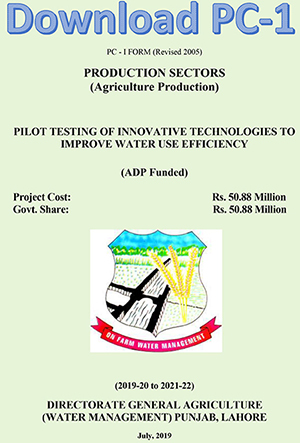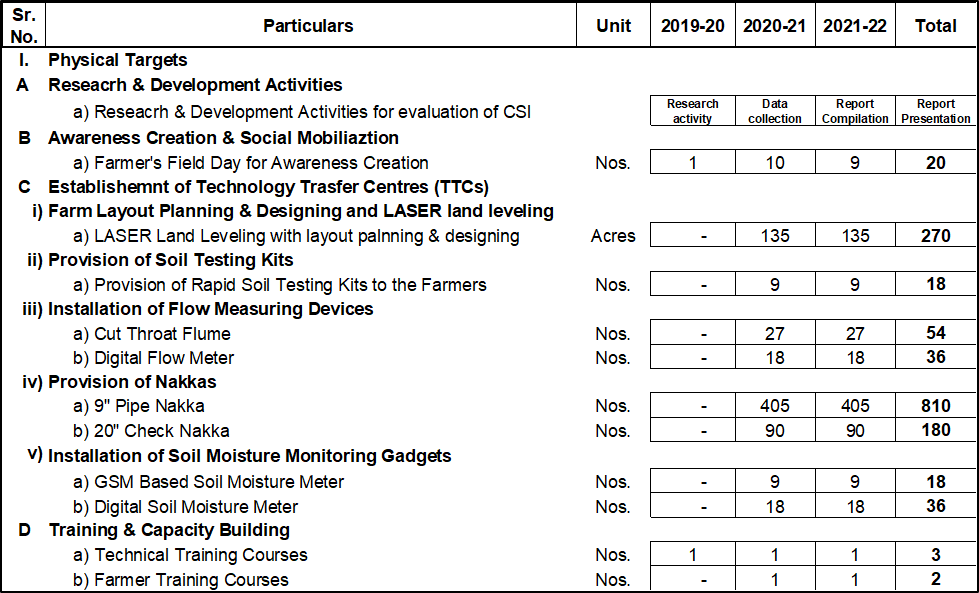Key Components
The major activities to be carried out under the proposed project would include, interalia, the followings.
- Calibration of efficacy of soil moisture monitoring gadgets and other climate smart OFWM interventions at Water Management Research Farm, Renala Khurd for their promotion/ upscaling
- Awareness creation about benefits of soil moisture monitoring/ irrigation scheduling and social mobilization of farmers for establishment of Technology Transfer Centers (TTCs) in Lower Bari Doab Canal (LBDC) command for the demonstration of climate smart OFWM interventions.
- Establishment of 18 Technology Transfer Centers (TTCs) in Lower Bari Doab Canal (LBDC) command for the demonstration to enhance water use efficiency through;
- Farm layout planning/ designing, precision / LASER land leveling and water budgeting & accounting.
- Provision of rapid soil testing kits to the farmers at TTCs for application of balanced fertilizer.
- Fixation of pipe nakkas according to soil type and water flow for channelized stream flows.
- Installation of flow measurement devices for open channels and tubewells for measuring the discharge of water for water accounting.
- Installation of soil moisture monitoring gadgets.
- Application of Alternate Wetting & Drying (AWD) and Direct Seeding Rice (DSR) water saving techniques in rice fields to increase the water productivity.
- Training of farmers for adoption of climate smart interventions and capacity building of technical staff for providing technical support to the farmers for successful adoption of interventions
 |
Location
The proposed project interventions will be implemented in Lower Bari Doab Canal (LBDC) command area. It is planned that the efficacy of the soil moisture measurement gadgets will be evaluated at Water Management Research Farm (WMRF), Renala Khurd, district Okara while demonstration of climate smart interventions will be carried out at 18 technology transfer centers (TTCs) to be established at nine (09) tehsil (Pattoki, Okara, Renalakhurd, Sahiwal, Chichawatni, Khanewal, Mianchannu, Jahanian and Kabirwala) of four (04) districts (Kasur, Okara, Sahiwal and Khanewal) in entire LBDC command. The location map is attached as
Gestation Period
Three (3) years (2019-20 to -2021-22)
Expected outcomes
- Saves water upto 35 percent
- Increases yield by 8 percent
- Reduces energy use upto 35 percent
- Improves produce qquality
- Curtails nutrients cost
Physical Implications
|
|
Financial Implications (Rs. million)
|
|



